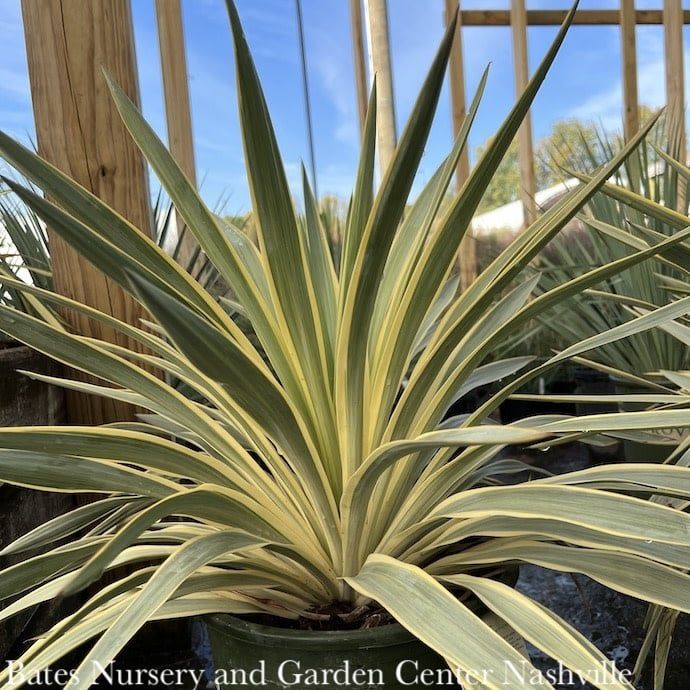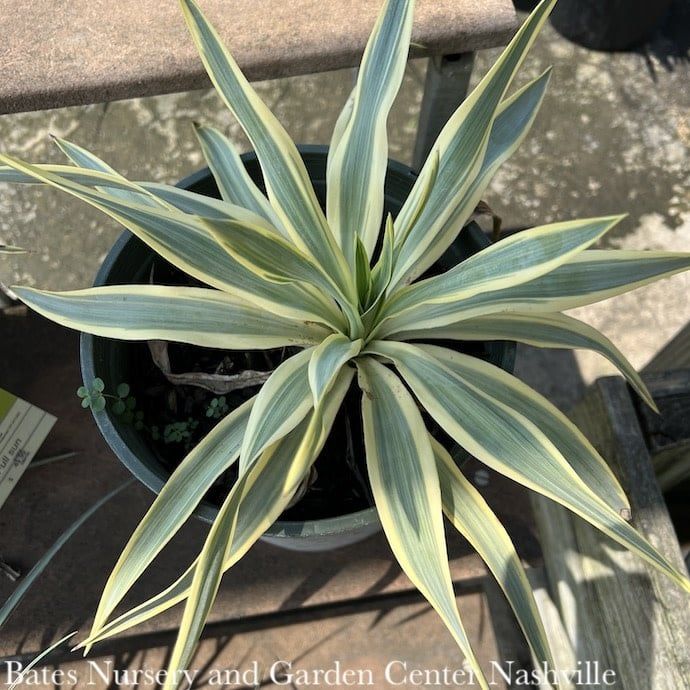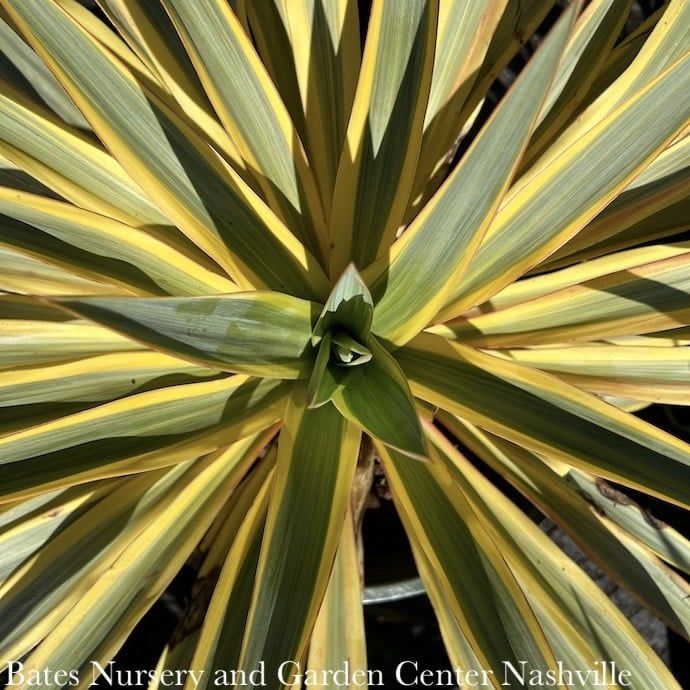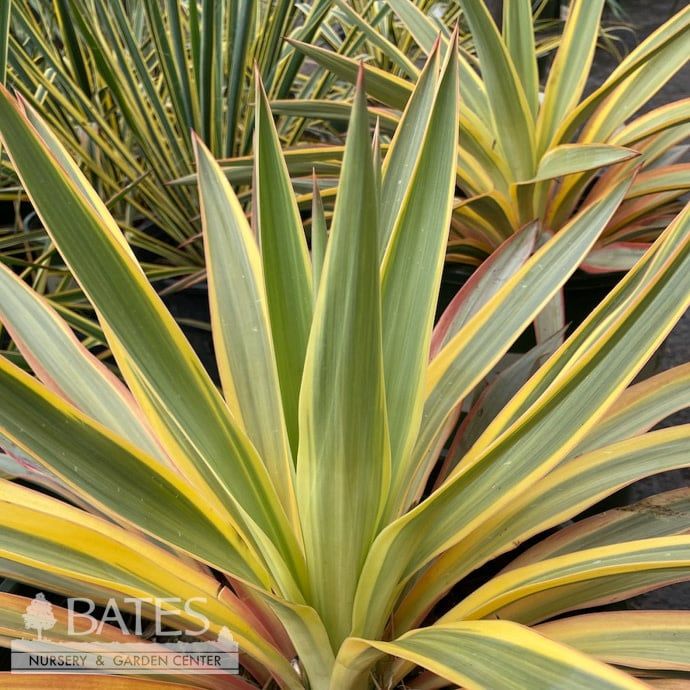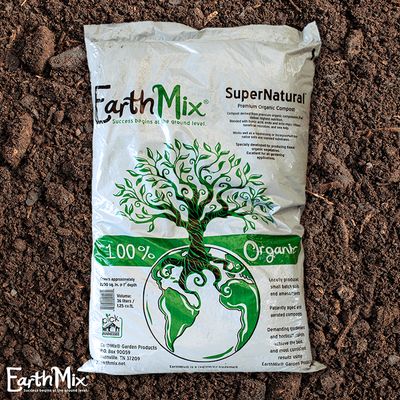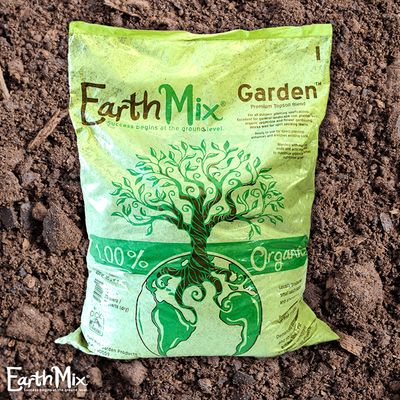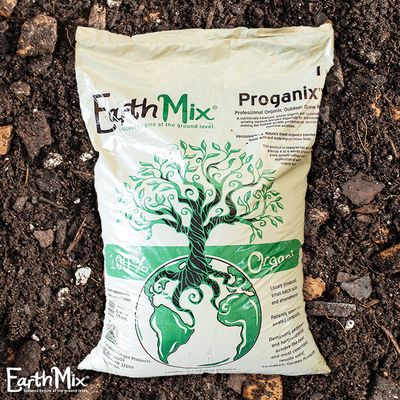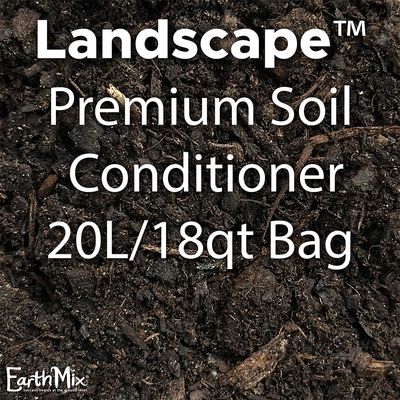#5 Yucca glor var rec Bright Star/ Variegated Native (R)
#5 Yucca glor var rec Bright Star/ Variegated Native (R)
SCIENTIFIC NAME: Yucca gloriosa var. recurvifolia 'Walbristar' (PP#17,653)
COMMON NAME: Bright Star Yucca
GARDEN SIZE: 1-2 ft. tall, up to 5 ft. wide; tall flower stalks with deep pink buds
GROWTH RATE: Moderate
USDA ZONE: 7 to 10
EXPOSURE: Full Sun
WATER & SOIL: Yuccas thrive in well-drained soils—sandy, rocky, or even clay if drainage is good. Once established, they are highly drought-tolerant but can handle occasional watering in prolonged dry spells. Avoid waterlogged sites to prevent root rot.
HABIT (FORM): Rosette with gracefully arching leaves; develops a short, trunk-like base for a tree-like appearance
FOLIAGE: Evergreen, strappy green leaves with bright yellow edges (chartreuse tones)
FLOWERS: Fragrant, white, bell-shaped flowers from deep pink buds; blooms infrequently in summer
PLANT ORIGIN: Found southwest of Tennessee
WILDLIFE SUPPORT: Host plant for butterflies and moths from neighboring states, and could be a food source for pollinators, birds, and small mammals. Supplies shelter and nesting sites.
FERTILIZING: Yuccas require little fertilization. Apply a light feeding of a balanced or low-nitrogen fertilizer in early spring if growth is slow or foliage looks pale. Over-fertilizing can cause weak, floppy leaves.
PRUNING: Very low-maintenance. Remove spent flower stalks and any dead or damaged leaves as needed, typically in late winter or early spring. Trunk-forming species may have dead leaves trimmed for a cleaner appearance.
TOXICITY: Generally considered mildy to moderately toxic to humans and pets.
USES: Excellent as architectural accents, borders, or container specimens. Ideal for xeriscaping, rock gardens, and pollinator-friendly landscapes, with striking blooms and bold evergreen foliage that provide year-round interest.
